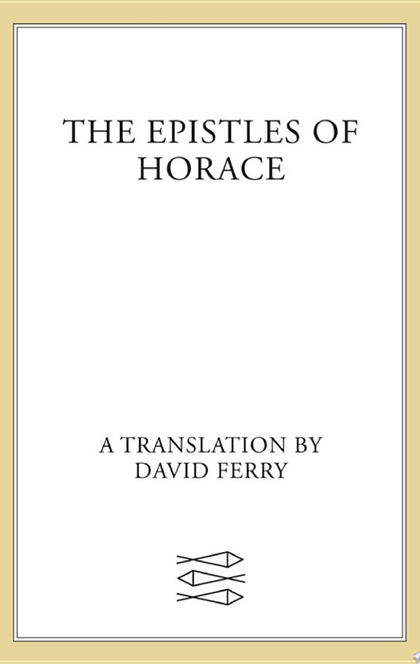The Epistles of Horace
Updated:
7 Sep 2020
My aim is to take familiar things and makePoetry of them, and do it in such a wayThat it looks as if it was as easy as could beFor anybody to do it . . . the power of makingA perfectly wonderful thing out of nothing much.--from "The Art of Poetry" When David Ferry's translation of The Odes of Horace appeared in 1997, Bernard Knox, writing in The New York Review of Books, called it "a Horace for our times." In The Epistles of Horace, Ferry has translated the work in which Horace perfected the conversational verse medium that gives his voice such dazzling immediacy, speaking in these letters with such directness, wit, and urgency to young writers, to friends, to his patron Maecenas, to Emperor Augustus himself. It is the voice of a free man, talking about how to get along in a Roman world full of temptations, opportunities, and contingencies, and how to do so with one's integrity intact. Horace's world, so unlike our own and yet so like it, comes to life in these poems. And there are also the poems--the famous "Art of Poetry" and others--about the tasks and responsibilities of the writer: truth to the demands of one's medium, fearless clear-sighted self-knowledge, and unillusioned, uncynical realism, joyfully recognizing the world for what it is.Available in ebook for the first time, this English-only edition of The Epistles of Horace includes Ferry's translation along with his introduction, notes, and glossary. "Reading these versions we feel as if the streets that Horace walked have opened onto our own" (Peter Campion, Raritan).




